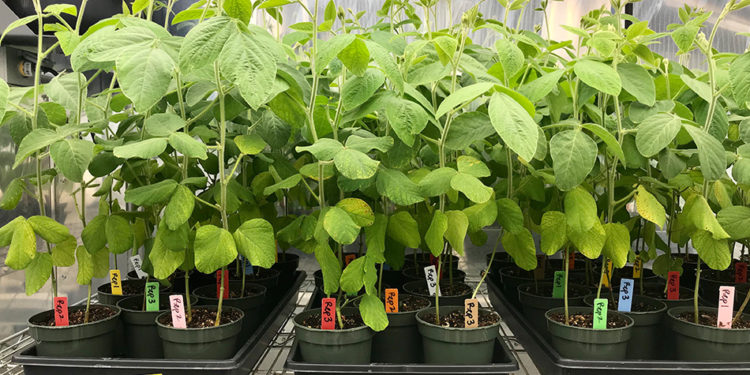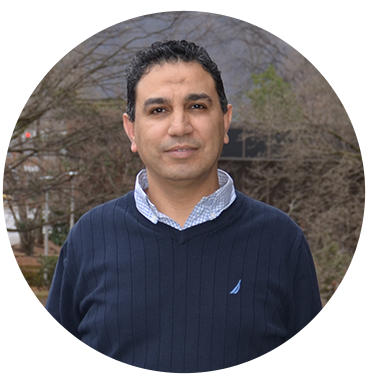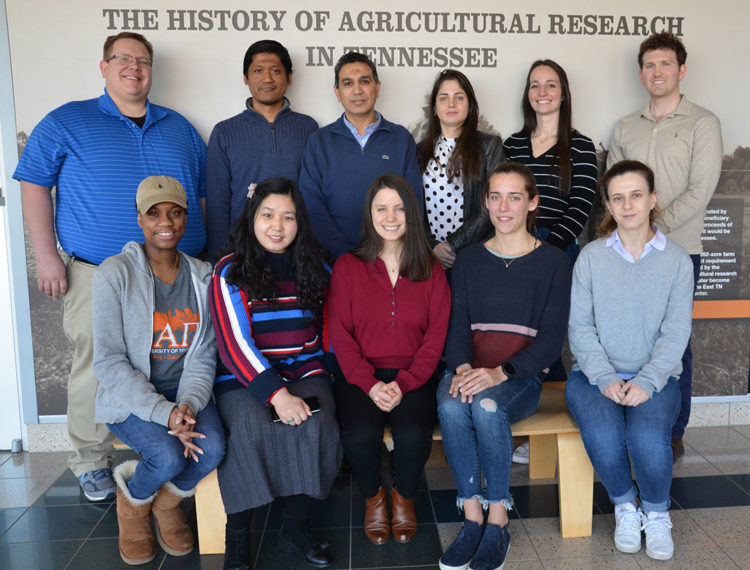
Obtaining a commercial license with an industry partner doesn’t happen overnight. The journey of bringing a technology from initial discovery to the marketplace can be a long and challenging process. Industry landscape changes constantly, and companies consistently raise the bar on the amount of data and de-risking they require prior to licensing.
Commercialization occurs in a “learn fast” environment where innovators must be willing to respond to evolving industry needs. As a result, research licenses with an option for an exclusive commercial license are becoming more popular. This type of agreement permits a company to “hold” a technology for a limited period of time, allowing the company to further evaluate its potential or raise funding for product development prior to committing to a commercial license agreement.

For Dr. Tarek Hewezi, associate professor in the Department of Plant Sciences at the University of Tennessee Institute of Agriculture (UTIA), a recent research license marks a great accomplishment and lays the groundwork for a potential long-term industry partnership.
Using a novel epigenetic approach, Tarek and his team identified several soybean cyst nematode (SCN) resistant genes, which have shown significant potential to develop disease-resistant plant varieties: a discovery that could save the soybean industry billions of dollars every year. In May 2020, UTRF executed an exclusive option agreement with GDM, a major international soybean genetics and breeding company for Tarek’s technology, “Discovery of Major Genes Controlling Soybean Resistance to Soybean Cyst Nematode.”
The execution of this agreement follows years of diligent research, technology evaluation, and marketing efforts. Since 2013, UTRF has partnered with Tarek to protect his innovations through four invention disclosures, one issued patent, and two pending patent applications. But protecting innovations is only one step in the commercialization journey. Gaining the interest of a commercial partner often requires proactive and targeted efforts; there is no guarantee that “if you build it, they will come.” In this case, UTRF and Tarek executed non-disclosure agreements with several companies, conducted four separate marketing campaigns from 2017 to 2019, and contacted 80 individual companies. Tarek also received two UTRF Technology Maturation Grants (2014, 2018), which aim to assist researchers to advance their technologies on the path to market by awarding up to $15,000 in direct costs to the highest-ranking proposals.

“Getting any technology to the market is a partnership between us, our researchers, and interested companies,” UTRF Vice President Maha Krishnamurthy said. “The bar is constantly being raised on the amount and type of data needed, but Tarek has always stepped up to the plate and delivered. UTRF has a great working relationship with him and we are really excited for this new partnership with GDM.”
Conversations with the GDM first began in the fall of 2018, resulting in a research visit to Tarek’s lab the following year. With the research license signed, the company will internally evaluate Tarek’s technology to determine its compatibility with their product line.
“We are very excited about this partnership because nematodes are a major problem in the main soybean producing countries like the US and Brazil. This will allow us to bring new solutions to the farmers to protect their soybean yield,” stated Ignacio Bartolomé, GDM Business Director for North America. “We are especially excited about this partnership for the US market where we are gaining pace and want to offer American Farmers the highest yielding genetics with the best agronomic traits and protection.”
Tarek now plans to work closely with the company as it begins research trials. If successful, his varieties could reach the market and begin helping farmers within four to five years.
“It is very exciting to see your work in the field and to have it directly impact the economy, human health, and improved production of soybeans,” he said. “It shows the significance of time spent developing new ideas, doing research, analyzing data, and finding solutions.”
Tarek also expresses appreciation for UTRF, along with the generous funding and support from the Tennessee Soybean Promotion Board, the UTIA Dean of AgResearch, and UTIA Department Head of Plant Sciences.
“Once you make a discovery, it can be very difficult to find your way to the market,” Tarek said. “I would not be able to do that without UTRF’s help. It’s outstanding. I have never seen any research foundation do what they do. They are very persistent and helpful. I think we are fortunate to have UTRF in this capacity at UT.”